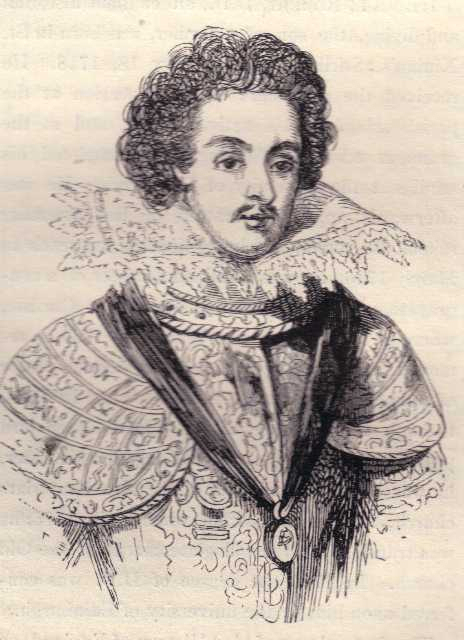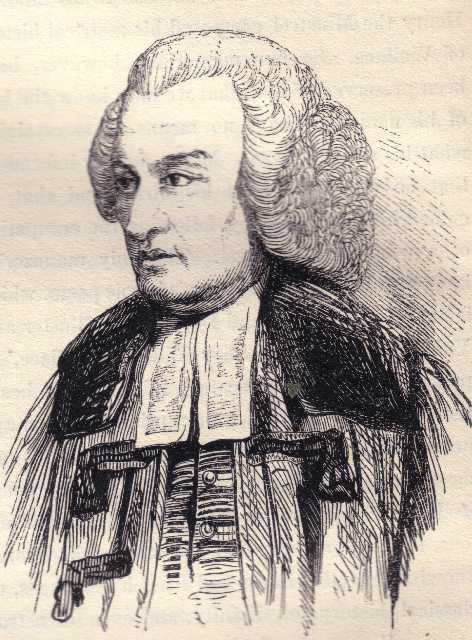HENRY, THE
MINSTREL, or BLIND HARRY,
as he was familiarly called, who commemorated in vernacular poetry
the achievements of Wallace, the champion of Scottish independence,
flourished in the fifteenth century. He is stated, by Dempster, to
have been living in 1361; but Major, whom Crawford supposes to have
been born about 1446, records that when he was in his infancy, Henry
the Minstrel composed his metrical history of Wallace. So few
memorials, however, have been preserved of him, that we only know
the half of his name, and have no means of ascertaining what his
surname was. Major farther informs us that he was blind from his
birth, and that he gained his livelihood by following the occupation
of a wandering minstrel. The only manuscript known to be extant of
Henry’s heroic poem, which is entitled ‘Ye Actis and Deides of ye
Illuster and Vailzeand Championn Shyr Wilham Wallace,’ is preserved
in the Advocates’ Library, and bears the date of 1488. The first
printed edition appeared at Edinburgh in 1570, and the latest and
most correct at Perth in 1790. From the poem itself, which abounds
in the romantic and marvellous, it would appear that the author had
some knowledge of the Latin and French languages, of classical
history, of divinity, and even of astronomy. For much of his
materials, he followed very strictly a book of great authority,
being a complete history of Wallace, written in Latin, partly by
John Blair, chaplain to that hero, and partly by Thomas Gray, of
which, however, there is now no trace.
HENRY, PRINCE OF
WALES,
eldest son of James the Sixth of Scotland, by Anne, sister of the
king of Denmark, one of the most accomplished princes of the age in
which he lived, was born February 19, 1594. He early proved himself
an apt scholar, and his attainments were extraordinary for his
years. Besides being versant in the learned languages, HE SPOKE THE
French and Italian fluently. He had likewise made considerable
proficiency in philosophy, history, fortification, mathematics, and
cosmography. Of the transcendent abilities of Sir Walter Raleigh, he
entertained a very high opinion, and in allusion to the long
imprisonment of that great man, he is reported to have said that no
king but his father would keep such a bird in a cage. Sir Walter
Raleigh had designed a second and third volume of his History of the
World, and had commenced a discourse on the Art of War by Sea, both
of which he intended to dedicate to the prince, but his highness’
untimely death discouraged him from proceeding with these works.
Prince Henry died in November 1612. His death was occasioned by a
violent fever; although it was for some time erroneously believed
that he was poisoned. Subjoined is his portrait.

[portrait of Henry Prince of Wales]
HENRY, DAVID,
a miscellaneous writer, was born in the neighbourhood of Aberdeen,
December 26, 1710, and was bred a printer. Early in life he went to
London, where a concurrence of circumstances placed him within the
notice of Mr. Edward Cave of St. John’s Gate, proprietor of the
Gentleman’s Magazine, whose sister he married in 1736. After which
he began business at Reading, where he started a newspaper, and
another at Winchester. In 1754 he became the partner of his
brother-in-law, at St. John’s Gate, where for many years he took an
active part in the management of the Gentleman’s Magazine, to which
he was a frequent correspondent. Mr. Henry died at Lewisham, June 5,
1792. He published the following works:
Twenty Discourses, abridged from Archbishop Tillotson, &c.
London, 1763.
The Complete English Farmer, or a Practical System of
Husbandry. London, 1772, Published without his name.
An Historical Account of all the Voyages round the World,
performed by English Navigators. London, 1774, 4 vols. 8vo. Also
without his name. To this work he added in 1775 a fifth volume,
containing Captain Cook’s Voyage in the Resolution, and in 1786 a
sixth, comprising the last voyage of Captain Cook.
He compiled, besides, a series of useful and popular
publications descriptive of the Curiosities and Monuments of
Westminster Abbey, St. Paul’s Cathedral, the Tower of London, &c.
HENRY, ROBERT, D.D.,
an eminent historian and divine, the son of a farmer, was born in
St. Ninian’s, Stirling-shire, February 18, 1718. He received the
rudiments of his education at the parish school of his native
village, and at the grammar school of Stirling, and completed his
studies at the university of Edinburgh. He was afterwards appointed
master of the grammar school at Annan, and being licensed to preach
in March 1746, he was ordained minister of a congregation of
presbyterian dissenters at Carlisle, where he remained twelve years.
In 1760 he removed to Berwick-u0on-Tweed, to become pastor of a
similar congregation in that town. In 1768, through the influence of
Mr. Lawrie, then lord provost of Edinburgh, who had married his
sister, he was appointed minister of the New Greyfriars church, in
that city, from whence, in 1776, he was translated to the collegiate
charge of the Old church. In 1770 the degree of D.D. was conferred
upon him by the university of Edinburgh.
The first volume of his ‘History of England, on a New Plan,’
was published in 1771; and on its appearance, the work was assailed,
in various publications, with the most acrimonious criticism,
chiefly from the pen of Dr. Gilbert Stuart, whose letters on the
subject, collected by d’Israeli, the elder, are inserted in the
‘Calamities of Authors.’ Dr. Henry, however, steadily persevered in
the prosecution of his design, and four other volumes were published
at successive intervals, the last in 1785. Through the
recommendation of the earl of Mansfield, George the Third bestowed
on him an annual pension of £100. The property of the work had
hitherto remained with himself; but in April 1786, when an octavo
edition was intended, he conveyed the copyright to Messrs, Cadell
and Strahan, for the sum of £3,300. He had prepared for the press a
sixth volume, bringing down the History to the reign of Henry the
Eighth, which, edited by Mr. Laing, was published in 1793, with the
author’s Life prefixed. Dr. Henry died November 24, 1790, in the 73d
year of his age. Subjoined is his portrait.

[portrait of Dr. Robert Henry]
Dr. Henry bequeathed his collection of books to the
magistrates of Linlithgow, to form the foundation of a public
library, for the use of the inhabitants of that town. He was
interred in the churchyard of Polmont, where a monument is erected
to his memory. He had married, in 1763, Ann, daughter of Mr. Thomas
Balderston, surgeon in Berwick, who survived him. The fifth edition
of his History appeared in 1823, in twelve volumes 8vo. A French
translation was published in 1789-96.

